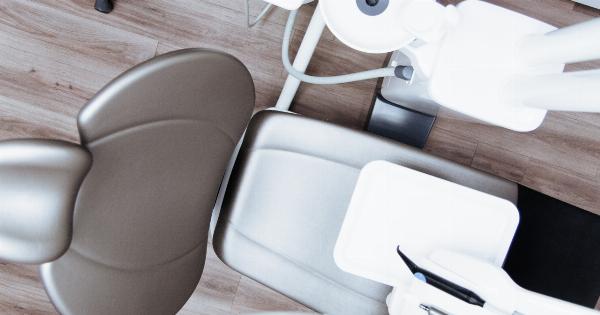When it comes to oral hygiene, most people are aware of the importance of brushing their teeth twice a day. However, many tend to disregard the significance of brushing their tongue.
While it may seem like an insignificant task, brushing your tongue has numerous benefits for your oral health. In this article, we will explore why you should never skip this crucial step in your dental hygiene routine.
The importance of tongue cleaning
1. Removes bacteria and odor.
One of the primary reasons to brush your tongue is to eliminate bacteria that accumulate on its surface. The tongue provides a warm and moist environment that is ideal for bacteria to thrive, leading to bad breath or halitosis.
By incorporating tongue brushing into your daily routine, you can significantly reduce the number of bacteria in your mouth, keeping your breath fresh.
2. Reduces the risk of cavities.
Did you know that not only teeth but also the tongue can develop cavities? Food particles left on the tongue can promote the growth of harmful bacteria, which produce acids that erode tooth enamel.
By regularly cleaning your tongue, you can minimize the risk of cavities and maintain optimal oral health.
3. Enhances the sense of taste.
The tongue plays a vital role in the sense of taste. Without proper cleaning, the taste buds on your tongue can become coated with bacteria and food debris, hindering your ability to enjoy the full range of flavors.
By brushing your tongue, you can keep your taste buds clean and improve your sense of taste.
How to brush your tongue effectively
Now that you understand the importance of cleaning your tongue let’s discuss the proper technique to achieve optimal results.
1. Choose the right tool.
When it comes to cleaning your tongue, you have a few options. Many toothbrushes have a tongue scraper on the back of the head, specifically designed for this purpose.
Alternatively, you can use a specialized tongue scraper, which is often more effective in removing bacteria.
2. Brush from back to front.
Start by rinsing your mouth with water to loosen any debris on your tongue. Then, using gentle pressure, brush your tongue in a back to front motion. Be sure to cover the entire surface of the tongue, including the sides.
Rinse your mouth again with water to remove any loosened bacteria or debris.
3. Don’t forget the back and sides.
Many people only focus on brushing the top of their tongue, neglecting the back and sides. However, these areas harbor a significant amount of bacteria. To ensure comprehensive cleaning, extend your brushing motion to the back and sides of your tongue.
4. Rinse and clean your brush.
After brushing your tongue, rinse your mouth thoroughly with water to remove any residue. Remember to clean your toothbrush or tongue scraper after each use to prevent the buildup of bacteria.
Tips for maintaining a healthy tongue
1. Stay hydrated.
Drinking an adequate amount of water throughout the day helps maintain a moist environment in your mouth, preventing bacterial overgrowth on the tongue. Make sure to drink enough water and avoid excessive consumption of sugary or acidic drinks.
2. Avoid tobacco and alcohol.
Tobacco use and excessive alcohol consumption can lead to an increased risk of oral health problems, including coated tongue and bad breath.
Quitting or reducing tobacco use and moderating alcohol intake can help improve the health of your tongue and overall oral hygiene.
3. Practice good oral hygiene.
Aside from brushing your tongue, maintaining a consistent oral hygiene routine is crucial for keeping a healthy mouth.
Brush your teeth twice a day with fluoride toothpaste, floss daily, and visit your dentist regularly for check-ups and professional cleanings.
4. Consider mouthwash.
Using an antibacterial mouthwash can further enhance the cleanliness of your mouth, including your tongue. Opt for an alcohol-free mouthwash with antibacterial properties to effectively kill bacteria without drying out your mouth.
5. Monitor changes in your tongue.
Regularly check your tongue in the mirror for any signs of discoloration, unusual bumps, or changes in texture.
If you notice anything out of the ordinary, such as persistent red or white patches, sores, or a persistent coating on your tongue, consult your dentist or healthcare provider for a proper evaluation.
Conclusion
Brushing your tongue is a simple yet essential step in maintaining proper oral hygiene. By dedicating a few extra seconds to clean your tongue, you can eliminate bacteria, reduce the risk of cavities, and improve your sense of taste.
Make tongue brushing a part of your daily dental care routine and enjoy the benefits of a healthier mouth and fresher breath.



























